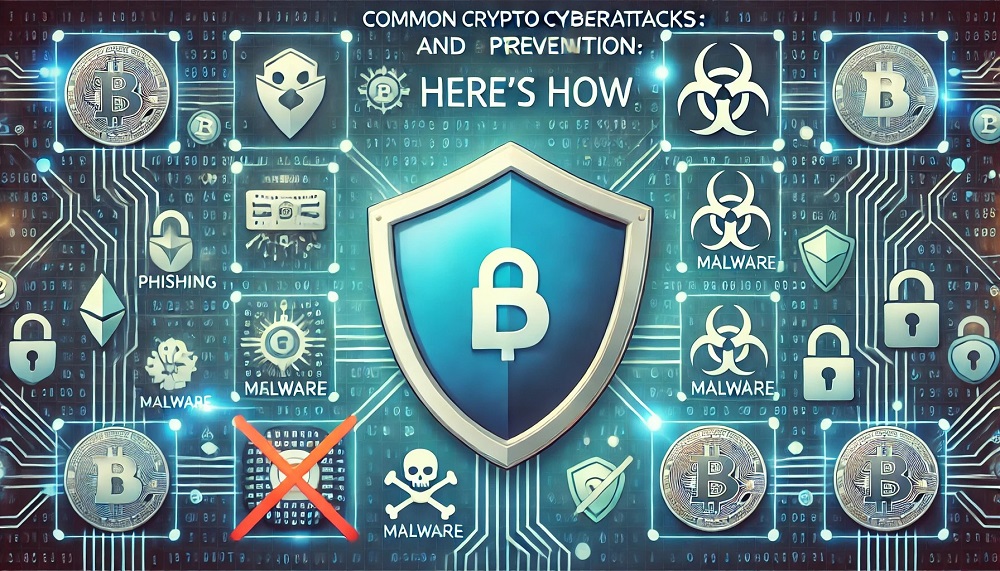Adopting cybersecurity best practices is crucial for individuals and organizations to prevent cyberattacks in the ever-changing world of online threats. Cyber dangers are still prevalent in many sectors of the interconnected digital world, including the cryptocurrency space.
Cyberattack Explained
A cyberattack is a deliberate attempt to infiltrate computer networks, devices, or systems to disrupt, steal data, or cause damage. In recent years, the number of cyberattacks involving cryptocurrency has significantly increased, resulting in substantial financial losses.
The frequency and diversity of individual hacking incidents have increased, with the $1.7 billion stolen in 2023 being a 54.3% decrease from 2022. This change implies that the financial impact has reduced despite expanding the spectrum of attacks.
Although previously considered ideal targets, stolen funds from decentralized finance (DeFi) platforms decreased from $3.1 billion in 2022 to $1.1 billion in 2023. These statistics emphasize the necessity of increased vigilance, an understanding of the most common cybersecurity threats, and proven strategies for preventing cyberattacks.
Phishing Attack
Phishing attacks in cryptocurrencies entail tricking consumers into disclosing their seed phrases or private keys using false communication channels such as emails, messages, or websites. One notable way hackers carry out phishing activities is through emails.
Hackers can send emails pretending to be trustworthy cryptocurrency exchanges, alerting recipients to potential dangers to their account security and requesting that they confirm their details by clicking on a link. When victims click on such links, they are redirected to a bogus website unknowingly where they provide their seed phrases or private keys to hackers, giving hackers access to their funds.
Therefore, adopting a thorough cybersecurity plan is crucial to strengthening defenses against phishing scams targeting cryptocurrency users.
Phishing Attacks’ Preventive Strategies
There are proven ways to prevent phishing attacks.
Adopt Two-Factor Authentication (2FA): Every crypto account should have a 2FA. Along with your password, you must confirm your identity with a second method, such as a text message code or authentication app.
Verify URLs: Before inputting private information, always verify the legitimacy of URLs twice. Ensure the URL corresponds to the official crypto exchange website or business you want to employ. Be highly vigilant; some URLs seem identical to reputable websites but with a slight change.
Exercise Caution: When you encounter dubious emails, texts, or messages, exercise caution. Don’t open attachments or click on links from unidentified or questionable sources. Confirm the sender’s identification if you are unsure the communication is legitimate.
Malware Attacks
A malware attack is caused by malicious software breaching wallets or infecting devices, enabling the theft of cryptocurrencies. Such attacks aim to provide illegal access to user cryptocurrency holdings and forward them to the attacker’s wallet.
One common mining malware is cryptojacking, in which attackers subtly mine cryptocurrencies using a victim’s computer’s capacity. Usually working quietly in the background, attackers introduce harmful code into websites or programs.
Without the victim’s knowledge or permission, this illegal use devours their resources, causing financial losses, higher energy consumption, and poorer gadget performance.
Preventing Crypto Malware Attacks
Crypto users should use many cybersecurity protections to guard against malware attacks.
Install and update antivirus software: Installing and updating anti-malware programs on every device helps find and eliminate malware before it can access wallets or other private data compromising cryptocurrencies.
Download software from official platforms: Avoid downloading from unapproved or foreign websites, as they could contain malware masquerading as official programs.
Vigilance with wallet apps or browser extensions: Be careful with wallets and extensions. Getting them from reliable sources and confirming their authenticity before installation is an ideal option.
Ransomware Attacks
In the digital currency industry, ransomware attacks are malicious viruses that encrypt files, including victims’ private keys or wallets, making them inaccessible. In most cases, exploiters request payment in Bitcoin in return for the decryption key.
How to Prevent Ransomware Attacks
As a cryptocurrency holder, you must implement various preventive measures to strengthen the security of your files against ransomware attacks.
Offline Backups and Cold Storage: Maintaining regular offline backups of crypto wallets and cold storage for private keys helps to ensure the fund’s safety. This habit lowers vulnerability to ransomware by allowing encrypted files to be restored from safe backups instead of paying ransom demands.
Exercise Care with Email Links: Avoid clicking on links from unverified or unknown sources. Phishing emails with dangerous attachments or links can corrupt computers and help spread ransomware.
Software Updates: Timely upgrades help reduce the possibility of cyberattack exploitation.
Conclusion
Protecting crypto assets from ransomware and other cyberattacks requires preventive measures. While updating software strengthens protections, regular offline backups and careful email activity help reduce threats. These techniques can assist you in defending your digital investments against attacks from ransomware or other cyberattacks.
